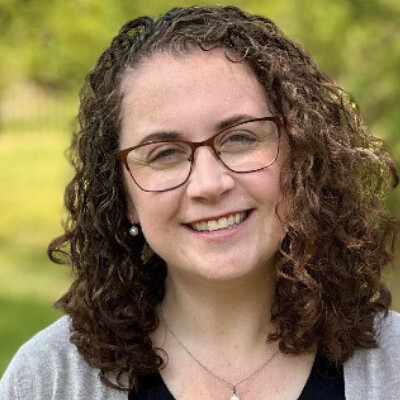This talk will address the theme of “Advancing Interprofessional Care through Practice-Education Partnership” by describing a model of workplace learning and continuing professional development. Extension for Community Healthcare Outcomes (ECHO) is an interprofessional, workplace learning model developed to build the capacity of healthcare teams to deliver evidence-based care focusing on complex condition/s and/or underserved populations. The ECHO program supports team-based workforce development using zoom for case-based learning led by expert, interprofessional teams.
Jefferson Center for Interprofessional Practice and Education became an ECHO hub in 2021 to engage clinical teams in this learning model. This presentation will describe JCIPE’s ECHO hub, FY25 outcomes, and best practices. In FY25, JCIPE coordinated 5 ECHO series for 3 ECHO programs: Integrated Behavioral Health (IBH), Inpatient Care for Opioid Use Disorder, and Caring for Patients with Intellectual and Developmental Disabilities (IDD). 329 learners participated including physicians (38%), nurses (16.4%), social workers (10%), advanced practice nurses (6.7%), pharmacists (4.3%), counseling and behavioral health specialists (4.0%), occupational therapist (2.1%), public health practitioners (2.1%), physician assistants (1.2%), and physical therapists (0.9%). ECHO teams utilized strategies to improve engagement including 1) asking polling questions at the beginning of ECHO sessions to gauge experience with the topic and whether participants had additional cases to share; 2) starting with the case discussion before the didactic; 3) asking polling questions at the end of ECHO sessions to assess learner application to practice; 3) reinforcing ECHO goals and series learning objectives at the start of each session; 4) recruiting participants across the enterprise with shared interests; 5) embedding the model in resident education conference; and 6) including patients and caregivers with lived experience as speakers, panelists, and/or participants.
In a post-ECHO survey (n=97), a majority of participants agreed or strongly agreed that their participation resulted in a “better sense of my team members’ roles and responsibilities,” (78%) and an “increased appreciation for the expertise of different health professions” (91%). In Spring 2025, a novel post-program evaluation (n = 42) for ECHO IBH and ECHO IDD identified that 83% of participants agreed or strongly agreed that they were “more likely to collaborate with interprofessional team members in patient care” as a result of their ECHO participation.
This presentation addresses several priority areas as the ECHO program engages patients and caregivers, aims to build workforce capacity to enhance care for underserved populations, presents measurable learning outcomes, and is designed to impact the Quintuple Aim.
In support of improving patient care, this activity is planned and implemented by The National Center for Interprofessional Practice and Education Office of Interprofessional Continuing Professional Development (National Center OICPD). The National Center OICPD is accredited by the Accreditation Council for Continuing Medical Education (ACCME), the Accreditation Council for Pharmacy Education (ACPE), and the American Nurses Credentialing Center (ANCC) to provide continuing education for the healthcare team.
As a Jointly Accredited Provider, the National Center is approved to offer social work continuing education by the Association of Social Work Boards (ASWB) Approved Continuing Education (ACE) program. Organizations, not individual courses, are approved under this program. State and provincial regulatory boards have the final authority to determine whether an individual course may be accepted for continuing education credit. The National Center maintains responsibility for this course. Social workers completing this course receive continuing education credits.
The National Center OICPD (JA#: 4008105) is approved by the Board of Certification, Inc. to provide continuing education to Athletic Trainers (ATs).
This activity was planned by and for the healthcare team, and learners will receive Interprofessional Continuing Education (IPCE) credit for learning and change.


Physicians: The National Center for Interprofessional Practice and Education designates this live activity for AMA PRA Category 1 Credits™. Physicians should only claim credit commensurate with their participation.
Physician Assistants: The American Academy of Physician Assistants (AAPA) accepts credit from organizations accredited by the ACCME.
Nurses: Participants will be awarded contact hours of credit for attendance at this workshop.
Nurse Practitioners: The American Academy of Nurse Practitioners Certification Program (AANPCP) accepts credit from organizations accredited by the ACCME and ANCC.
Pharmacists and Pharmacy Technicians: This activity is approved for contact hours.
Athletic Trainers: This program is eligible for Category A hours/CEUs. ATs should claim only those hours actually spent in the educational program.
Social Workers: As a Jointly Accredited Organization, the National Center is approved to offer social work continuing education by the Association of Social Work Boards (ASWB) Approved Continuing Education (ACE) program. Organizations, not individual courses, are approved under this program. State and provincial regulatory boards have the final authority to determine whether an individual course may be accepted for continuing education credit. The National Center maintains responsibility for this course. Social workers completing this course receive continuing education credits.
IPCE: This activity was planned by and for the healthcare team, and learners will receive Interprofessional Continuing Education (IPCE) credits for learning and change.
Learners can claim CE credit by completing the Daily Evaluation.




